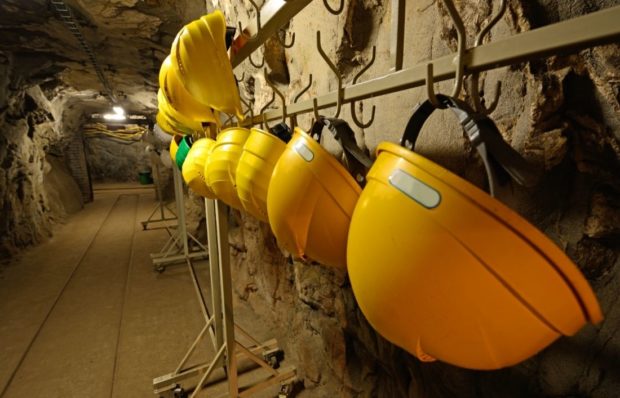Coalition blocks moves to reduce mining royalty of LGUs

INQUIRER.net stock images
DAVAO CITY, Davao del Sur, Philippines — Several groups have opposed the move at the House of Representatives to reduce the royalty fee imposed on mining companies and granted to local government units (LGUs) hosting their operations.
Beverly Besmanos, national coordinator of Bantay Kita, a coalition of civil society organizations advocating for transparency and accountability in the extractive industry, said the lowering of the royalty from 5 percent to 3 percent would have adverse impact on the royalty share of LGUs.
House Bill No. 8937, or An Act Enhancing the Fiscal Regime for the Mining Industry, proposed to lower to 3 percent the royalty on gross output for large-scale metallic mining operations within mineral reservations. It had been approved at the committee level in a hearing on Aug. 22, said Albay Rep. Joey Salceda, committee chair.
Bermanos, in a phone interview on Sunday, said the reduced royalty rate would likely result to rise in mining activities but would also a cause a drop in the income of host localities.
She noted that under Section 13 of the Implementing Rules and Regulations (IRR) of Republic Act No. 7942 or the Philippine Mining Act of 1995, the royalty should not have been less than 5 percent of the market value of the gross output for mining companies operating in mineral reservations, exclusive of all other taxes. The same rate was also originally contained in the 2022 committee report of the House ways and means committee.
Besmanos said that while the government aimed to generate more revenue from mining, the committee-level approval of HB 8937 failed to secure increased financial gains from the mining industry and instead “protects the financial risks of mining companies rather than the impacted communities.”
Negative implication
A tax advocacy expert, who requested not to be named, explained in a separate interview the negative implication of a reduced royalty rate to host LGUs.
In the case of Claver town in Surigao del Norte province, lowering the royalty to 3 percent means reducing the share of the municipality from P137.7 million to P82.6 million, a reduction of P55 million or 40 percent.
He said the amount was equivalent to 76 percent of the town’s P72.63-million spending for social services and social welfare in 2022.
As of 2022, almost half of Claver, a second-class town with a population of 36,033, had been covered by mining tenements. These mining tenements covered 15,226 hectares within mineral reservations and 688 ha outside mineral reservations.
Mindanao hosts at least eight operating metallic mines within mineral reservation areas.
These are in Loreto, Libjo, Basilisa and San Jose, and Tubajon in Dinagat Islands; Claver and Tagana-an in Surigao del Norte; Carrascal in Surigao del Sur; and Rosario in Agusan del Sur.
These localities would definitely all face reduced incomes should HB 8937 gets enacted into law.
Margin-based royalty
HB 8937 also seeks a margin-based royalty from 1 percent to 5 percent for large-scale metallic mining operations outside mineral reservations. For instance, a 1-percent royalty will be collected from a mining firm if the profit margin is between 1 and 10 percent, 1.50 percent from above 10 percent up to 20 percent, and so on.
On the other hand, small-scale metallic mining operations will be levied a royalty rate of one-tenth of 1 percent of gross output.
Under the IRR for RA 7942, mining firms need to pay another royalty of not less than 1 percent of their gross output to indigenous cultural communities if the operation is within an ancestral domain.
HB 8937 also introduces a profit-based windfall tax design, which levies metallic mining companies 1 percent if the profit margin from its operation would reach 35 to 40 percent, 2 percent if more than 40 percent to 45 percent, with the tax increasing up to 10 percent as the margin increases.
HB 8937, a substitute bill for House bills 373, 2014, 2246, 3888 and 8050, was included in the calendar of business of the House of Representatives on Aug. 30. INQ
RELATED STORIES
‘State of No Action:’ Group says still no action on mining-affected communities


















